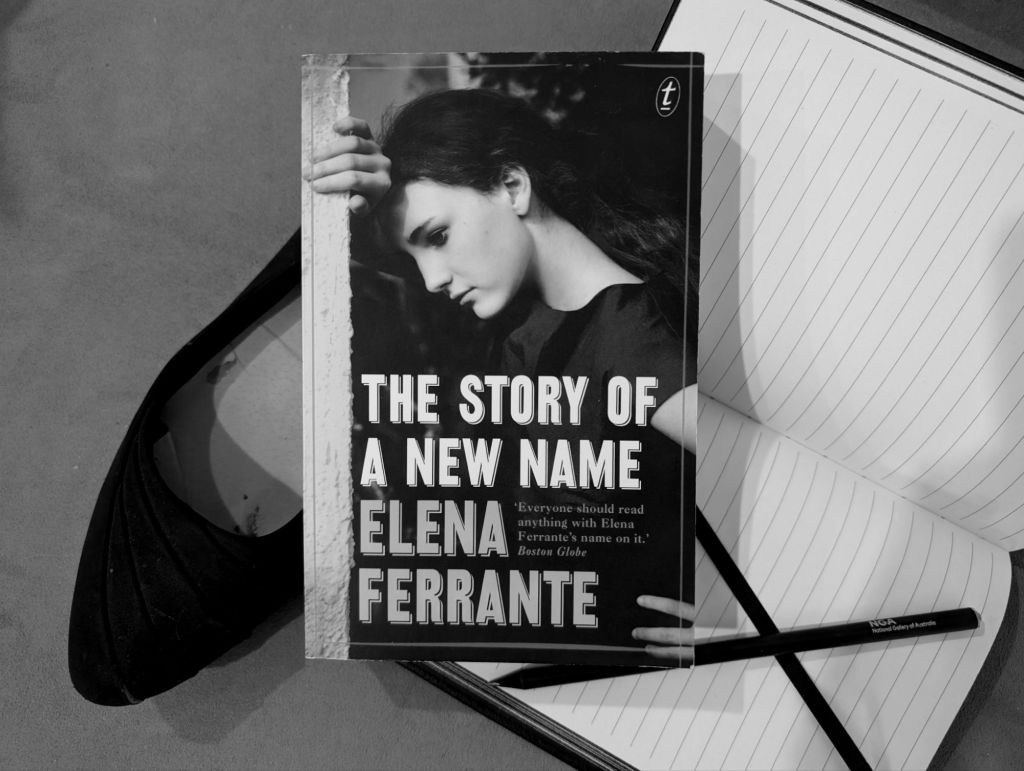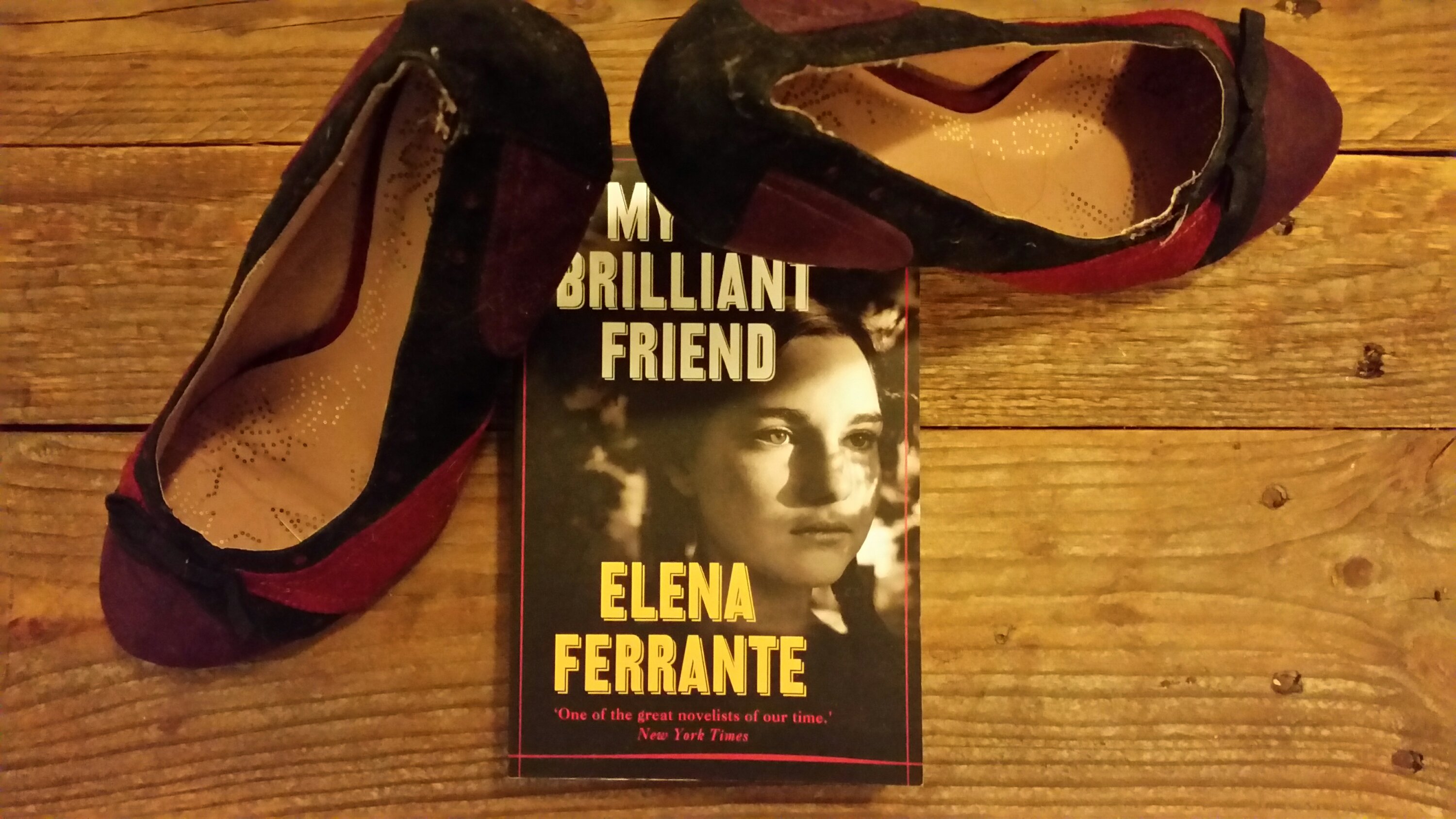Second novel in the Italian historical fiction series the “Neapolitan Novels”
I can’t believe it, but it has been over six years since I read the first book in this series. I remember being engaged but not enthralled, and even though I had the other books in the series on my shelf, I hadn’t gotten around to reading the next one. I recently saw that the very faithful TV adaptation was available to stream on SBS on Demand. Inspired, I decided to watch a few episodes of the first season, and pick up the second book which is the basis of the second season.

“The Story of a New Name” by Elena Ferrante is a historical fiction novel and the second book in the “Neapolitan Novels” series. The story picks up almost immediately after the events of the first book with Lila’s wedding. When she returns from her honeymoon with her new husband, it becomes clear that her new life is a terrible mistake. After an intense holiday together by the seaside, Lenù and Lila see less and less of each other. When Lenù is accepted to study at university in Pisa, the friendship and their two life trajectories become even more distant.
I’m not sure if it was because the characters were more adult, the setting less bleak, the story growing more compelling or the fact that I am now older, but I found myself enjoying this book much more than I did the first one. Against a backdrop of an increasingly liberal society, Ferrante explores themes of envy and comparison that naturally take place between two friends who are so similar in age, background and ability but whose lives have diverged so drastically. Even as Lenù finds success and fulfils her academic and professional potential while Lina is trapped in a patriarchal domestic nightmare, Lenù still envies Lina’s love affairs and is plagued with insecurity that she is not as smart or as beautiful as her best friend. Increasingly, as a reader you find yourself wondering how Lina views Lenù.
While I was extremely slow to read the second book in this series, I am now much more inspired to read the third.



